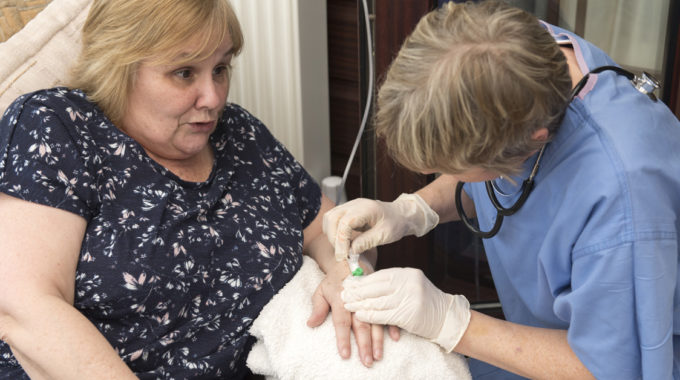
When to Start Non-Medical Home Care
For many families, starting non-medical home care can be challenging. Retirees often resist the concept at first. To them, accepting in-home aide services may be a sign that they have reached a different stage in life. Or, they may see it as an intrusion on their independence. This makes adult children hesitant to even broach the subject.
What’s more, a senior’s physical and mental abilities decline gradually. This increases the challenge of identifying the point in time when home care must be addressed.
Timing is Important
However, timing is important. Waiting too long to start talking about home care can result in multiple problems. These include caregiver burnout, health issues for the retiree, and health issue for the caregiver. In some cases, waiting too long to start can miss the window completely and the only option becomes moving the senior to a nursing home. Starting home care at the right time can make living at home sustainable for longer, if not indefinitely. Timely initiation of home care protects the health, comfort, and even the independence of retirees.
Signs A Person Needs Home Care
- Trouble following doctors’ orders for taking meds.
- Injuries at home: especially slips, falls, and burns.
- Change in diet:
- Missed meals.
- Over-reliance on convenience foods.
- Declining nutritional status.
- Retiree complains of lacking family support.
- Change in dress: less kempt, less clean.
- Not keeping doctor appointments.
- Decline in personal hygiene.
- Signs of depression.
- Wandering / signs of confusion.
- Unpaid bills.
- Limited mobility: risk of falls.
- Fear of driving: this fear may cause reluctance to visit the pharmacy or grocery store.
- Declining cleanliness or safety of the home.
Caregiver Fatigue and Burnout
Knowing when to start home care entails more than giving attention to the retiree. It also requires paying attention to the family caregiver. In many cases, a retiree has a family caregiver, and the senior feels like that is the best and only solution. The caregiver’s physical and emotional status must be monitored. The correct time to support a family caregiver with professional aide services is as soon as there are signs of fatigue. Letting a fatigue situation go too long results in burnout. That situation may be worse than it sounds. A burned-out caregiver usually cannot and should not return to the caregiving role, even with paid support. Getting committed to a nursing home and serious strain on family relationships often results.
Signs of Caregiver Fatigue
- Declining health status of a caregiver such as getting sick more often.
- Declining mental or emotional status of caregiver including exhaustion or irritability.
- Caregiver feels like he or she has no time for self.
- Caregiver feels like he or she has inadequate support.
- Caregiver worries about what will happen if he or she can no longer perform the caregiving task.
- Reduced social interaction or social withdrawal.
- Changes in sleep patterns.
- Feelings of wanting to hurt or insult the person being cared for.
In conclusion, the resistance seniors usually have toward getting a home care agency usually serves no purpose. Instead, it tends to delay important services, increasing the likelihood of negative outcomes. Loved ones can improve this situation by being aware of these signs. The presence of any one or two of the signs above means it’s time. Moreover, loved ones must care enough to have the home care conversation even when it may feel uncomfortable.






